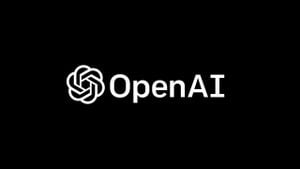The Telecom Regulatory Authority of India (TRAI) has recently introduced a comprehensive framework for broadcasting services under the Telecommunications Act, 2023. This new framework aims to modernize the broadcasting sector by simplifying authorization processes and reducing regulatory burdens. The recommendations were made public on February 21, 2025.
TRAI proposed the removal of the ₹100 crore net worth requirement for Internet Service Providers (ISPs) offering Internet Protocol Television (IPTV). This aligns IPTV services with existing internet service authorization provisions. The recommendations also include making radio broadcasting service terms technology agnostic, enabling the adoption of digital technologies within radio broadcasting.
The new framework distinguishes between two sets of rules: The Broadcasting (Grant of Service Authorizations) Rules and The Broadcasting (Television Channel Broadcasting, Television Channel Distribution, and Radio Broadcasting) Services Rules. Authorization will be granted under Section 3(1)(a) of the Telecommunications Act. The framework harmonizes terms for similar services, covering eligibility criteria and application processes.
Existing licensees can migrate to the new authorization regime voluntarily, and this migration will not incur processing or entry fees. The validity of new authorizations will commence from the effective migration date, regardless of existing license durations.
On the financial side, TRAI has also recommended reductions in authorization fees and bank guarantees for certain broadcasting services. For Direct-To-Home (DTH) services, the fee will be reduced to 3% of adjusted gross revenue (AGR), with plans to phase it out by the end of FY27. The bank guarantee for Headend-in-the-Sky (HITS) services will decrease significantly, from ₹40 crore to ₹5 crore for the entire validity period.
New service categories have been proposed to expand broadcasting options, including Ground-based Broadcasting of Television Channels and Low Power Small Range Radio Service. These additions not only aim to diversify options but also to facilitate enhanced service delivery.
TRAI stresses the importance of interoperability, encouraging the adoption of interoperable set-top boxes (STBs). This initiative allows consumers to switch service providers without the hassle of changing their set-top boxes. Such changes can improve consumer choice and reduce electronic waste, which has become increasingly important as technology advances.
To reinforce these changes, TRAI has emphasized the need for voluntary infrastructure sharing among broadcasting and telecom service providers when it is technically and commercially feasible. This sharing of resources aims to advance mutual benefit across the industry and improve service delivery to consumers. "TRAI advocates for the voluntary sharing of infrastructure among broadcasting service providers and telecom infrastructure operators, emphasizing... sharing should be the norm," stated TRAI.
Looking to the future, TRAI also plans to consult on the inclusion of over-the-top (OTT) platforms within its authorization framework. There is growing interest among stakeholders to establish parity between OTT services and traditional broadcasting.
Importantly, TRAI has outlined regulatory oversight measures. Any changes to service authorization terms must receive TRAI's recommendations, with the exception of matters concerning national security. These suggestions are aimed at protecting the interests of service providers and promoting regulatory stability within the broadcasting sector.
Set-top box users across the nation can now breathe a sigh of relief. They can switch service providers without having to replace their entire set-top boxes, resolving previous inconveniences. Such consumer-friendly adjustments reflect TRAI's commitment to enhancing user experience and supporting the broadcasting industry through streamlined operations.
With these new recommendations, TRAI is taking significant steps to modernize and improve the broadcasting sector, ensuring it meets the needs and expectations of consumers today and tomorrow.



